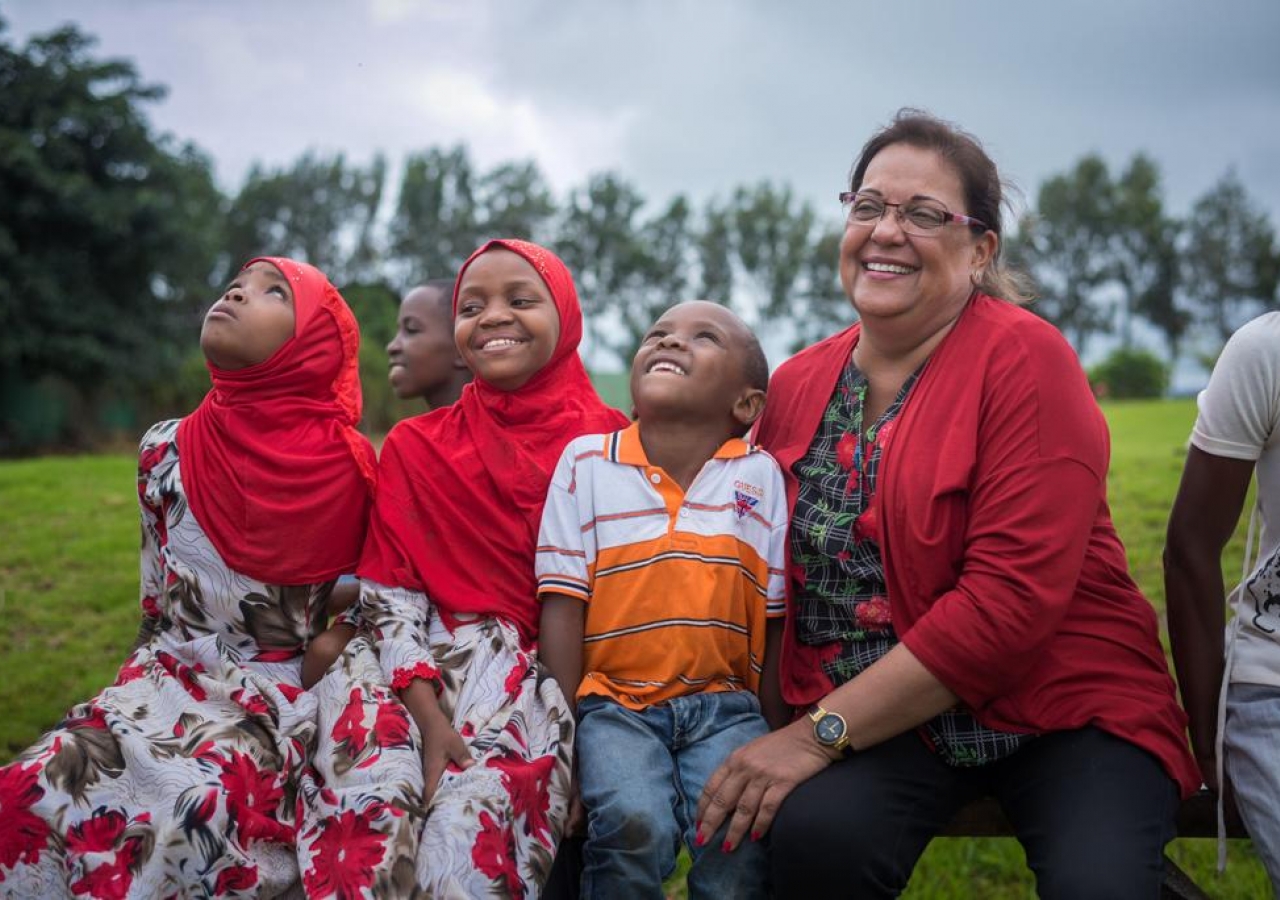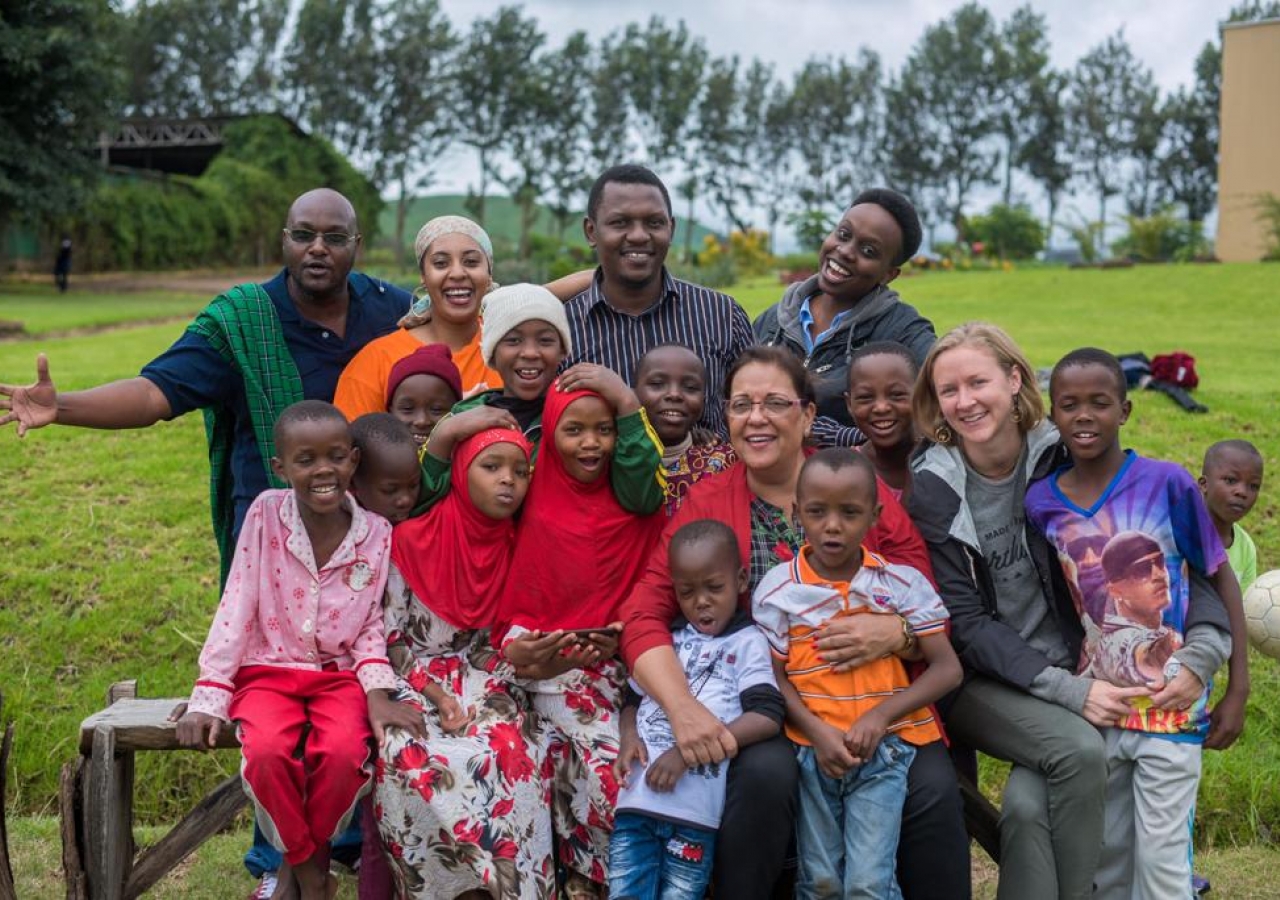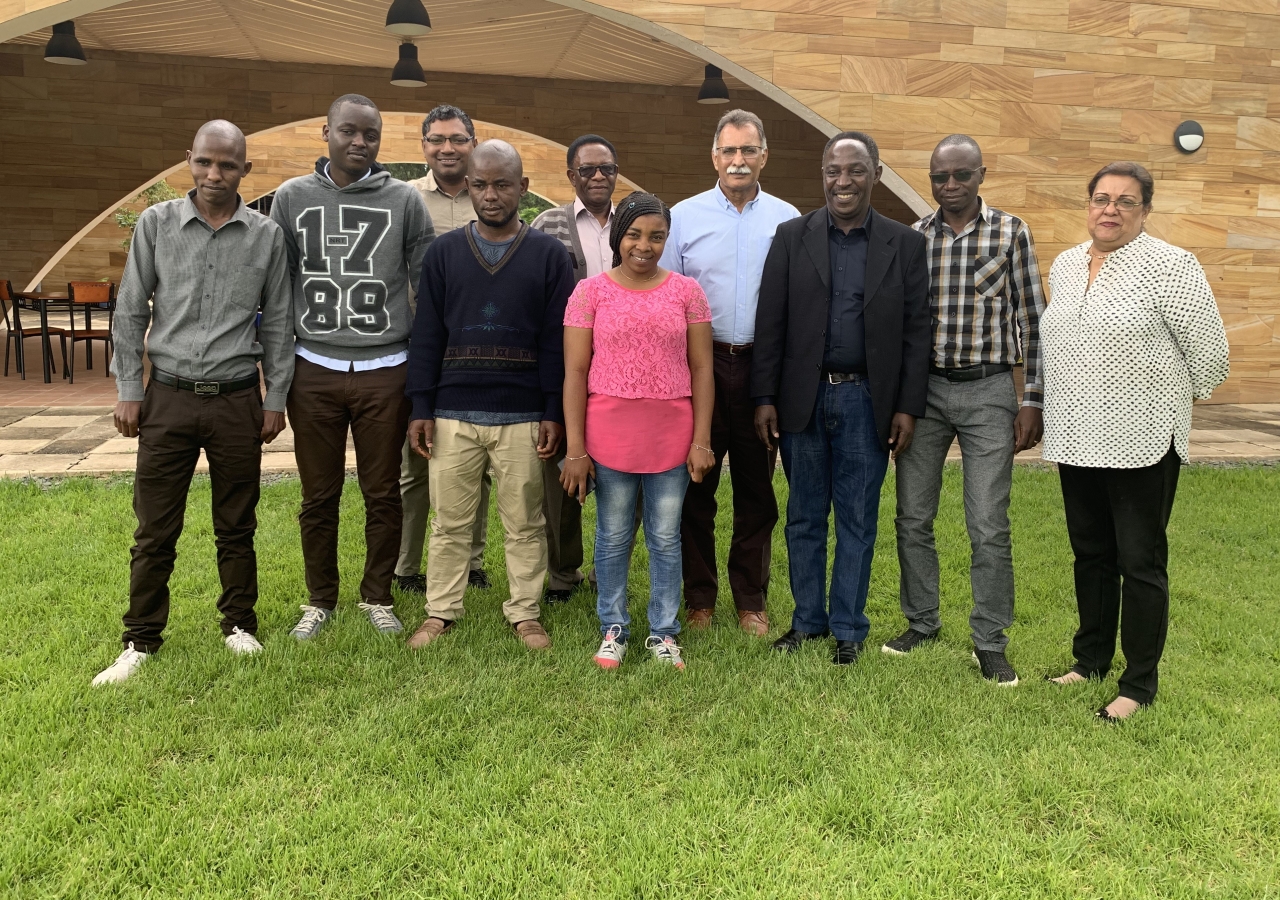Azmina admits her new life as a volunteer was not conceived on her own initiative. She had a successful career in the travel and tourism industry in Canada. When her husband Murad accepted a new job opportunity in Pakistan with the Aga Khan University, she initially expected that there might also be a job for her. However, when this did not immediately materialize, Azmina was not one to sit idle at home, so she involved herself in community volunteer service to keep busy.
That is when it happened. She discovered to her delight that not only did she have a passion for community outreach, but also saw the results of her engagement with people in community-based programs. In Karachi, Azmina taught disadvantaged women embroidery and how to sew clothes. She gathered others who were able to teach, expanding the impact of an initially small effort. She noticed that many women in Karachi did not participate in the work force, so she also joined an initiative to provide training in secretarial employment.
Pursuing full-time employment was an option Azmina considered. However, she was intrigued by people in the community who were contributing their time and skills as TKN volunteers. This inspired her to accept her first one-year TKN assignment in Karachi.
When Azmina’s husband was transferred to a new appointment at AKU in Arusha, Tanzania, Azmina’s mind was open to doing more volunteer work. She took up another TKN assignment as Special Projects Implementer in Arusha, establishing new programs and services to meet local community needs. That was a decade ago and the results of her efforts have been significant.
Today, the Community Outreach Centre at AKU’s Arusha Campus is a hive of activity. Alongside the Community Engagement team, Azmina regularly welcomes local entrepreneurs to meet at the Centre for a remarkably successful microcredit program. Over the past 10 years, 348 Community-Based Savings Groups (CBSGs), each comprised of 25 members (80% of which are women), have developed business management skills and improved financial literacy. English classes and reading clubs for children take place on the weekend, followed by a nutritious feeding program and games that utilize AKU Arusha’s sports field.
“One of the children started with us three years ago,” Azmina says about Baraka, an 8-year-old boy in the reading club program. “He’s a bright boy, who loves to draw the most beautiful pictures of his home, always with happy children and animals playing games with a ball.”
Mohamed is another past participant in the program. Azmina barely recognized him when she encountered him working at a cell phone kiosk in the mall. “There is immeasurable pride when I see these young people growing up,” she says. “It hasn’t been an easy start for many of these children.”
Azmina is responsible for sales of the produce grown in several demonstration gardens at the Centre. She ensures that the participants benefitting from a program to distribute grass cuttings as fodder for cattle are from neighbouring communities. She handles arrangements for the maintenance of several rental properties on AKU’s Arusha lands. She oversees the kitchen in the Community Outreach Centre and dozens of cooking, cleaning, and security staff. When AKU faculty hold events at the Centre, Azmina handles the logistics.
Recently, the pace of these events has accelerated with the launch of AKU’s Arusha Environmental Research Reserve, a new initiative to use the lands for studies on climate change and environmental sustainability. With a smile on her face, Azmina offers the boundless Swahili welcome phrase, “Karibu!”
What motivates her own boundless energy? She points to the impact of these programs in the community. But she also pays tribute to her husband, Murad Jivan. “There have been challenges,” she concedes. “But I wouldn’t be here if it weren’t for him. And neither of us would have been able to do what we do if we didn’t operate as a team and love what we do.” Together, they serve as role models, always striving to make a positive difference in the world but accepting that this objective involves facing challenges, taking risks and making occasional mistakes. In these bumps and imperfections along life’s path, they see learning opportunities.
At the core of the TKN endeavour is the commitment to service. Azmina’s decade of service is extraordinary, and she wishes more people would consider long-term assignments. Her advice is to make the leap of faith, with ample flexibility and patience. “Everyone has the power to make a difference and sometimes results come easy,” she observes before adding, “but the TKN program is about learning too, and a longer assignment has allowed me to take on new challenges I never expected at the beginning.”
When asked to reflect on her contributions, Azmina becomes uncharacteristically quiet. “I’m blessed,” she says. “I’m fulfilled. It’s indescribable.”
AKU is immensely grateful to Azmina for her exemplary long-standing TKN service and outstanding commitment.










